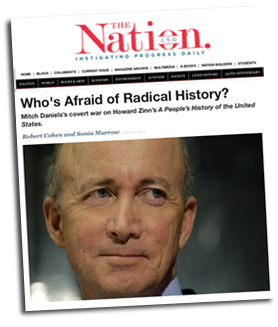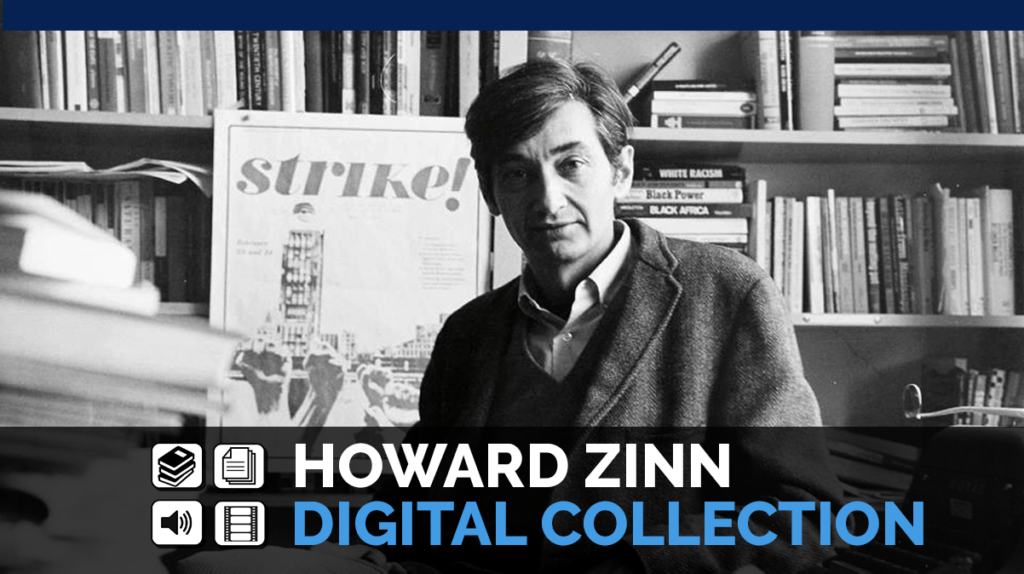
Who’s Afraid of Radical History?
By Robert Cohen and Sonia Murrow • The Nation • August 5, 2013
Mitch Daniels’s covert war on Howard Zinn’s A People’s History of the United States.
Read More »
Mitch Daniels’s covert war on Howard Zinn’s A People’s History of the United States.


